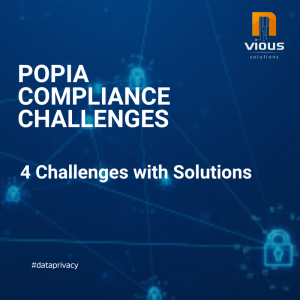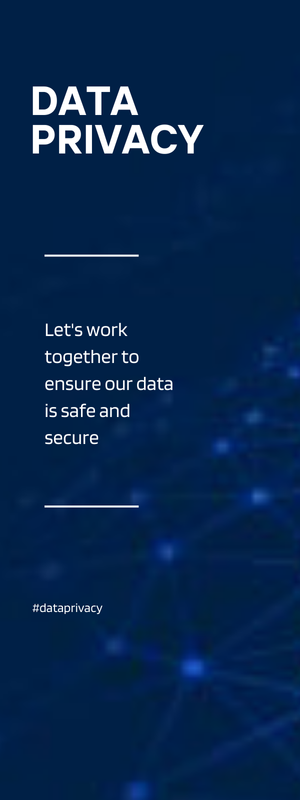
The rapid growth in data processing also raised concerns about privacy infringement and the potential for abuse. To address these concerns, POPIA mandates that organizations adhere to several principles.
These include obtaining consent from individuals before processing their personal information, ensuring that data is collected for specific, legitimate purposes, and maintaining accuracy and security throughout its lifecycle.
The Act emphasizes transparency, requiring organizations to inform individuals about how their data will be used and to whom it may be disclosed. This transparency fosters trust between organizations and their customers or users, promoting responsible data practices.
Enforcement of POPIA is overseen by the Information Regulator, which monitors compliance and investigates complaints related to data protection breaches. Non-compliance can result in significant penalties, reinforcing the importance of adhering to the Act’s provisions.
By establishing clear guidelines and responsibilities for data handling, the Act aims to balance the benefits of data-driven innovation with the protection of individuals’ privacy rights. Thus, it supports trust in digital transactions and enhances data security practices across the board.

When the General Data Protection Regulation (GDPR) was first introduced, it set a standard for all data protection laws around the world, so naturally, similar laws are, more or less, inspired by GDPR.
While the terminologies of POPIA and GDPR are similar, there may be nuanced differences in their application and scope, reflecting the specific legal frameworks and contexts of South Africa and the European Union, respectively.
These are the key terminologies under POPIA that define the roles, rights, and responsibilities concerning the processing and protection of personal information in South Africa.
Responsible Party: This refers to a public or private body or any other person which, alone or in conjunction with others, determines the purpose of and means for processing personal information.
Data Subject: An identifiable, living natural person or a juristic person (such as a company or organization) whose personal information is processed.
Personal Information: Information relating to an identifiable, living natural person or a juristic person, including but not limited to biographical information, contact information, demographic information, personal opinions, and financial information
Information Officer (IO): An individual appointed by a responsible party to ensure compliance with POPIA within an organization.
Deputy Information Officer: Role that assists the Information Officer in fulfilling their duties under POPIA.
Special Personal Information: Includes information concerning a person’s religious or philosophical beliefs, race or ethnic origin, trade union membership, political persuasion, health or sex life, biometric information, criminal behavior, or financial information.
Consent: Permission given by the data subject for the processing of their personal information.
Personal Data Breach: A breach of security that leads to the accidental or unlawful destruction, alteration, loss, or unauthorized disclosure of, or access to personal information.
Cross-border Transfer: The transfer of personal information to a recipient in a foreign country outside of South Africa, subject to certain conditions and safeguards under POPIA.
Processing: Any operation or activity or any set of operations concerning personal information, including collection, storage, dissemination, or destruction.
Operator: A person or entity who processes personal information on behalf of a responsible party.
GDPR inspired other data protection laws. Hence, there are similarities between GDPR and POPIA. There are also slight differences, most notable are:
POPIA protects companies and organizations as juristic persons, whereas the GDPR only protects living individuals.
Unlike the GDPR, which applies to the processing of personal data from the EU regardless of where the controller/processor is located, POPIA only applies to companies or organizations located within South Africa (except entities that use automated processing means in South Africa, e.g., ad tech and social media companies).
Where the GDPR clearly defines a data processor (as a natural or legal person processing personal data on behalf of the data controller), POPIA only talks about the Responsible party, i.e., no “joint controller”-responsibility.
POPIA requires all companies and organizations to appoint an Information Officer (automatically assigned to the CEO), whose role and responsibilities differ in important areas from the GDPR’s Data Protection Officer. POPIA also requires companies and organizations to appoint a Deputy Information Officer.
While both POPIA and GDPR split the definition of data into personal information and special personal information (or sensitive data in the GDPR), POPIA also assigns criminal offenses to the latter.


Businesses rely heavily on data to drive operations, enhance customer experiences, and remain competitive. Therefore, data protection is crucial for several key reasons:
Legal Compliance: Adhering to the POPI Act is a legal requirement. Non-compliance can result in severe penalties, including fines up to ZAR 10 million and potential imprisonment for responsible individuals.
Operational Efficiency: Implementing robust data protection measures can streamline data management processes, reduce redundancies, and improve overall operational efficiency. Well-managed data systems ensure that businesses can quickly access accurate information, which is essential for decision-making and strategy development.
Customer Loyalty: Customers are increasingly aware of their data privacy rights. Businesses that comply with data protection laws like the POPI Act can enhance customer trust, leading to stronger customer relationships and loyalty. Transparent data practices assure customers that their personal information is handled with care and respect.
Risk Management: Effective data protection reduces the risk of data breaches, which can have devastating consequences for businesses. Data breaches can lead to financial losses, legal liabilities, and significant reputational damage. By implementing strong data protection measures, businesses can mitigate these risks and protect their assets.
All businesses in South Africa, as well as any entity processing data within the country, must comply with the POPI Act. This involves adhering to a comprehensive set of regulations designed to safeguard personal information.
Key aspects include implementing robust data protection measures, ensuring the lawful processing of personal data, obtaining consent where required, notifying individuals of data breaches promptly, appointing a dedicated Information Officer, and conducting regular audits to ensure ongoing compliance with the Act’s provisions. This involves:
Implementing Data Protection Policies and Practices: Establish and enforce comprehensive data protection policies that align with the POPI Act’s requirements.
Ensuring Transparency and Accountability: Organizations must be transparent about their data processing activities and accountable for safeguarding personal information. This involves informing data subjects about how their data is used and ensuring data processing is done lawfully and ethically.
Respecting Data Subjects’ Rights: Businesses must recognize and respect data subject rights, including their rights to access, correct, and delete personal information.
Penalties for Non-Compliance: Failure to comply with the POPI Act can lead to severe legal and financial consequences. These penalties not only impact the business financially but can also harm its reputation and operational capabilities. Also, a person who violates POPIA as per Chapter 11 can face imprisonment of up to 10 years.
Implementing Robust Data Protection Measures: Businesses are required to implement adequate security measures to protect personal information from unauthorized access, loss, destruction, or alteration. This includes both technical safeguards (such as encryption and secure storage) and organizational measures (like access controls and staff training).
Lawful Processing of Personal Data: Personal data can only be processed lawfully and in a manner that does not threaten individuals’ privacy. This means collecting personal information for legitimate purposes and ensuring that processing activities are consistent with those purposes.
Obtaining Consent Where Required: Consent must be obtained from individuals before processing their personal information, unless another lawful basis for processing exists (such as contractual necessity or compliance with legal obligations). Consent should be specific, informed, and freely given.
Notifying Individuals of Data Breaches: In the event of a data breach that compromises personal information, businesses must notify affected individuals and the Information Regulator as soon as reasonably possible unless the data breach is unlikely to result in harm to the individuals.
Appointing a Dedicated Information Officer: Organizations are required to appoint an Information Officer who is responsible for ensuring compliance with the POPI Act. This individual serves as the point of contact between the organization and the Information Regulator and oversees data protection efforts within the organization.
Conducting Regular Audits for Compliance: Regular audits and assessments are necessary to evaluate the effectiveness of data protection measures and ensure ongoing compliance with the POPI Act. These audits help identify vulnerabilities, assess risks, and implement necessary improvements to protect personal information effectively.

Nvious Solutions (Pty) Ltd.
Site Designed and Maintained by Ovation Internet